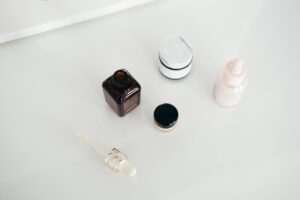The Benefits of Using Anti-Aging Creams: Do They Really Work?
Introduction
As we age, the quest for youthful, radiant skin becomes increasingly important. Anti-aging creams promise to reduce wrinkles, fine lines, and other signs of aging, but do they really work? In this blog, we will delve into the benefits of using anti-aging creams, explore their effectiveness, and provide insights and reviews to help you make informed decisions.
Understanding Anti-Aging Creams
Anti-aging creams are specially formulated to target signs of aging. They often contain active ingredients that are scientifically proven to improve skin health and appearance.
- Common Ingredients: Retinoids, hyaluronic acid, peptides, antioxidants (like Vitamin C), and alpha hydroxy acids (AHAs) are frequently found in anti-aging products.
- Mechanism of Action: These ingredients work by boosting collagen production, promoting cell turnover, hydrating the skin, and protecting against free radical damage.
The Science Behind Anti-Aging Creams
Research supports the efficacy of many anti-aging ingredients. Here’s how some key components work:
- Retinoids: Derived from Vitamin A, retinoids accelerate cell turnover and stimulate collagen production, reducing the appearance of fine lines and wrinkles.
- Hyaluronic Acid: This powerful humectant draws moisture into the skin, plumping it and reducing the visibility of wrinkles.
- Peptides: These small proteins help rebuild damaged skin cells and signal the skin to produce more collagen.
- Antioxidants: Ingredients like Vitamin C neutralize free radicals, preventing oxidative damage and brightening the skin.
Benefits of Using Anti-Aging Creams
Regular use of anti-aging creams can offer numerous benefits, contributing to a youthful and healthy complexion.
- Wrinkle Reduction: Ingredients like retinoids and peptides help diminish the appearance of fine lines and wrinkles.
- Improved Skin Texture: Exfoliating agents, such as AHAs, promote smoother, more even skin texture.
- Enhanced Hydration: Hyaluronic acid and other moisturizers keep the skin hydrated, which is crucial for maintaining a plump, youthful look.
- Brightened Complexion: Antioxidants and exfoliants can reduce pigmentation and enhance skin radiance.
- Preventive Care: Using anti-aging creams can help protect the skin from future damage by providing essential nutrients and antioxidants.
Real User Reviews and Insights
To provide a comprehensive view, let’s look at some user experiences with anti-aging creams:
- Sarah, 45: “I’ve been using a retinol-based cream for six months, and the difference is remarkable. My skin feels smoother, and the fine lines around my eyes have significantly reduced.”
- John, 50: “Hyaluronic corrosive creams have changed my skincare schedule. My skin is much more hydrated and feels firmer.”
- Linda, 38: “Vitamin C serums are my go-to. They’ve brightened my complexion and faded some dark spots I had.”
Choosing the Right Anti-Aging Cream
Selecting the right anti-aging cream depends on your skin type and specific concerns.
- For Dry Skin: Opt for creams rich in hydrating ingredients like hyaluronic acid and ceramides.
- For Oily Skin: Lightweight, non-comedogenic formulas with ingredients like salicylic acid can help.
- For Sensitive Skin: Look for gentle, fragrance-free options with calming ingredients such as aloe vera and niacinamide.
- For Combination Skin: Balance is key; choose products that offer hydration without clogging pores.
Conclusion
Anti-aging creams can be a valuable addition to your skincare routine, offering multiple benefits that help maintain a youthful and radiant complexion. While results may vary depending on the product and individual skin type, many users report noticeable improvements in skin texture, hydration, and reduction of fine lines. By understanding the science behind these products and choosing the right formulation for your skin, you can make an informed decision and enjoy the potential benefits of anti-aging creams.





